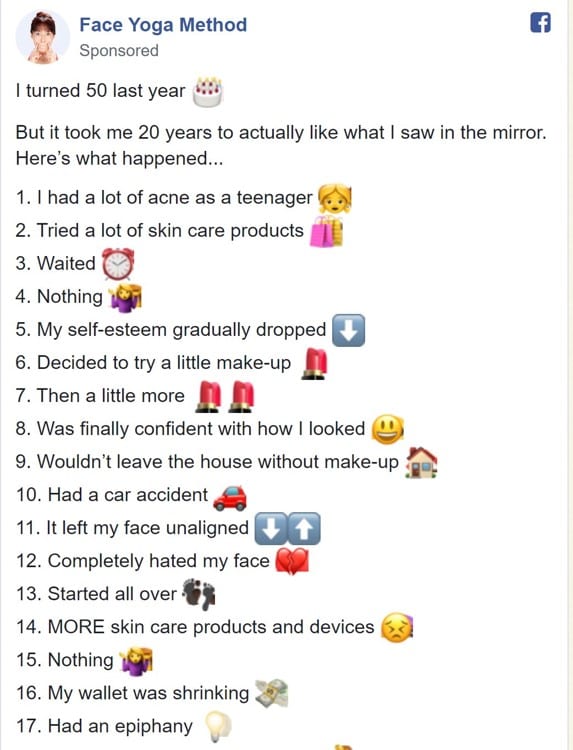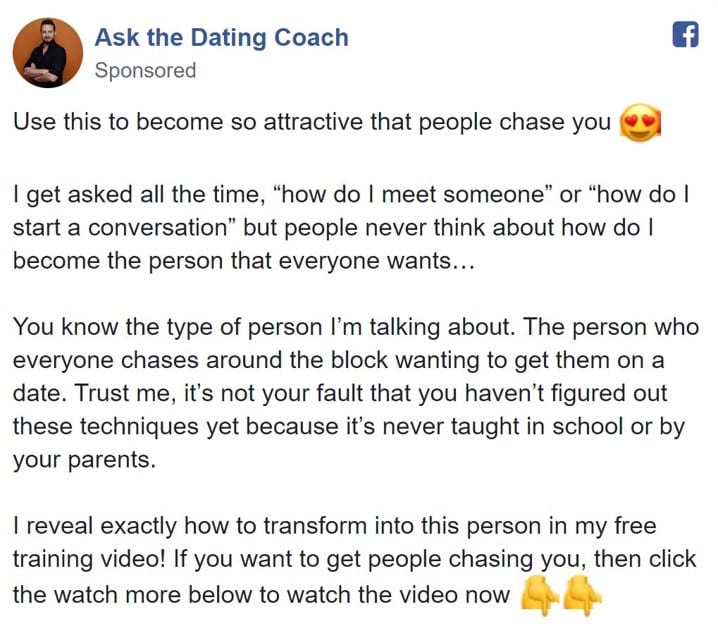Transcript
This week, we will talk about the Primal Persuasion Secrets and social exclusion schema.
Now, as a reminder, remember that schemas are coping mechanisms that you create as a child to survive traumatic events.
These coping mechanisms help children survive, but they don't necessarily serve as adults.
So we all have some level of these schemas as we talk about them.
We're also talking about the psychological principle. So we're always talking about the worst case. But these things are usually arranged like a one to 10 scale.
Many people will have many different schemas at various levels.
Schemas determine how we feel, act, and relate to others.
They trigger intense feelings such as anger, sadness, and anxiety.
So that works excellent for copywriting.
By understanding your market's primary life traps or schema, you can create a message that resonates on a psychological level.
Think of the life traps as the loop people get into to keep reliving this trauma and the schema as the definition of the trauma, social exclusion.
People who have social exclusion feel isolated from the rest of the world.
- They feel different. They feel excluded.
- They don't belong to a group of friends. Or even if they do, they still feel like an outsider.
- Maybe they grew up with a disability as a child. They had an unusual characteristic that made them feel different in some way. Perhaps they had a congenital disability.
- Or think of maybe an immigrant family where your family all speaks another language, something that made them feel different than everyone else.
- As an adult, they maintain this life trapped through avoidance, socializing with groups, and making friends, at least close ones.
- And overall, as an adult, they still feel ugly, sexually undesirable.
- They feel like their status is lower than it should be.
- They feel like they don't have good conversation skills or are boring, other deficient somehow.
- Social exclusion characteristics are what you're going to be looking for in the market, they feel and act inferior in social situations.
However, many are comfortable in intimate settings. They are quite socially skilled one-on-one, so many people don't realize how anxious and aloof they feel at parties, classes, meetings, and work.
So that's something you can use there.
They have a restless quality about them, and they're always looking for a place to belong. And if you've been keeping track of the other primary persuasion secrets, this one is usually closely related to defectiveness and a failure schema as well.
Indicators:
- They feel very self-conscious in social situations.
- They think they're dull and boring.
- They feel their friends are above them, whether it's wealth or looks or status.
- They're always comparing themselves to other people and feeling less than them.
- They avoid such social situations.
- They feel unattractive and fundamentally different.
- They don't belong. They're loners. They're outsiders.
- Something different about them, and in general, they're just disconnected from the community at large.
Common markets with these schemas are
- Dating and pick up
- Beauty
- High ticket items, because even though they feel disconnected from others, they want to be a part of the cool group. They want to be one of the cool kids.
- So that goes with mastermind's clubs and groups as well.
- Any product that deals with the social interaction or bettering your social status or your looks or any of those kinds of things would be a market where you find social exclusion schema.
Stories at work, revealing secrets, insider knowledge. If they just had the experience, maybe they would be one of the cool kids. Anything that makes them feel like they can be a part of the club. Using credentials as a profession, especially when you're letting them into the club.
You know, I'm going to be able to associate with Dr. So-and-so or this cool guy of some kind or stories where they can avoid embarrassment stories.
An "I was just like you" story where you can portray yourself or the main character as someone with a defect of some kind, but they overcame it.
And exclusivity, like I, can be a part of the cool club again.
Here are some examples.

I've got a Gary Halbert here at the top.
Have you ever wondered what you would look like with a million-dollar smile if they have a social exclusion where they feel like they can't interact because of their teeth?



I get the face yoga method talking about how she turned 50 last year, but it took her 20 years to like what she saw in the mirror.
She didn't like it. She was defective, too.
It then goes on and on about all the reasons she was defective and how she overcame it.



As the dating coach uses to become so attractive, people chase you again.
They feel unattractive.
They feel like they're not sexually desirable.



The wine text up here, see for yourself with the Internet wine-drinking community has been buzzing about these past few months.
This is my chance to be a part of this wine community if I'm into wine.
But I, I feel socially awkward or like I don't belong in that group.
This is my chance to be a part of it to see what they're saying and get in.
Forbes talked about billionaires are billionaires for a reason, and they want to share their secrets with you.
This is my chance to be a part of that billionaire club to get in some secret knowledge to help me become just like them.
So in summary,
- People suffering from a social exclusion schema believe they are inferior, and they ache to belong.
- They use avoidance as a primary defense mechanism. However, they desperately want to be a part of the cool kids use copy that gives them access to that cool group.
- And keep in mind, the schema is closely tied to the defectiveness and failure schema.
So up your copy by adding those elements as well.
That's it for this week.
If you have any questions, you can hit me up at Funnel Copy Experts Dotcom.
If you want to learn more about Lifetraps check out Dr. Young and Dr. Klosko's schema book here.
